He bought an apartment in Spain and made a new life for himself. ‘I have not looked back’
Relocating to a sunny Mediterranean city in Spain isn’t always just for a more relaxed lifestyle — although siestas are a definite plus. Making the leap can also lead to pursuits you’ve dreamed of in a place you love.
Just ask Matthew Coe.
The 60-year-old real estate and corporate lawyer from Wenatchee, Washington, embarked on a fresh start after the global economic crisis hit his job in the hotel sector, pushing him to reconsider future plans. He quit his corporate job in Hong Kong with a major hotel brand and moved to Europe.
Of all the cities Coe had toured and lived in during his career, including Hong Kong, Singapore, Seattle and Chicago, he picked laid-back Barcelona, Spain. Looking back, he says he has no regrets.
“Trips to Mediterranean countries had always been my favorite destination. I could not get enough of the likes of Turkey, Spain, Italy and Greece. When fallout from the Great Recession brought changes to my corporate workplace, I decided it was time to turn the page on that life and pursue new interests including really learning a foreign language,” Coe tells CNN.
The move resulted in so much more than Spanish language skills.
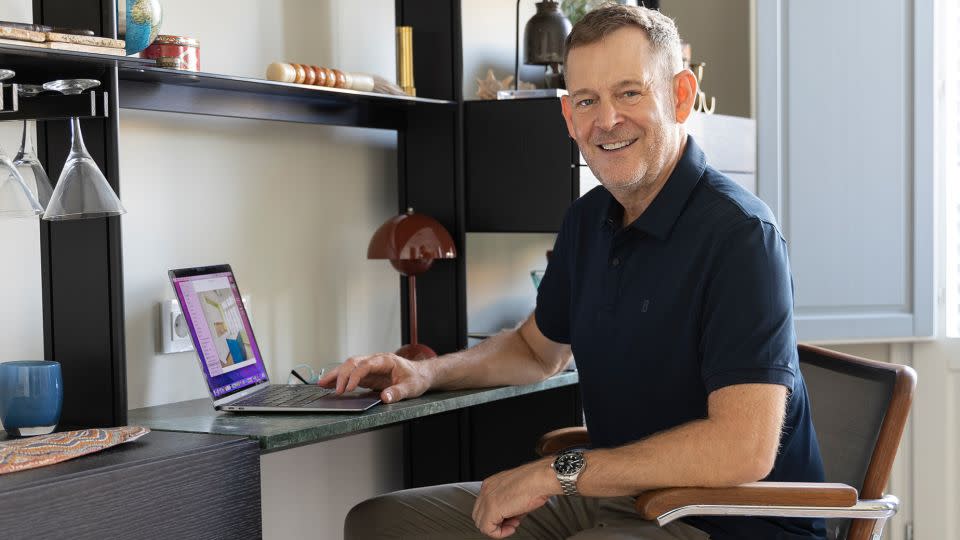
“What started off, in my mind, as a break or sabbatical, turned into a new chapter of my life in Europe and entrepreneurial pursuits related to real estate investment and design.”
Coe “tested” the rhythm and size of Valencia and Madrid, living in rented apartments in both cities for a time before settling on a longer lease in Barcelona.
He worked as a consultant for the same hotel group for several years while he studied Spanish and eventually started buying and renovating apartments to flip. Coe returned to Hong Kong for several years, but the start of the Covid-19 pandemic in early 2020 spurred him to put down more permanent roots in Barcelona — “a more pleasant place to ride out the pandemic versus being under strict lockdown in Hong Kong,” with significantly lower costs of living.
“I have not looked back. I know now that Catalunya is home,” Coe said.
Making Spain home
His July 2020 move back to Barcelona at the height of the pandemic was the natural choice for him — the right mix of culture, food, weather and lifestyle.
In 2021, he made the move more permanent by purchasing a 90-square-meter (about 970-square-foot) apartment in a Modernist building from the mid-1920s in Barcelona’s lively Sant Antoni neighborhood. He paid 400,000 euros (about $435,000) and renovated it for 125,000 euros (about $135,000).
He overhauled the place, knocking out internal walls and combining rooms to create a large bedroom with an open-plan bath area and dressing room. The one-bedroom, one-and-a-half bath apartment has two balconies and a small back terrace.
The apartment’s original tile alfombras (rugs) are a focal point.
“When I walked into the apartment the first time, I fell in love with the floors,” Coe said. “As part of the renovation, I had the tiles cleaned and shined to recapture the original luster. I strive to retain original elements whenever I renovate a property.”
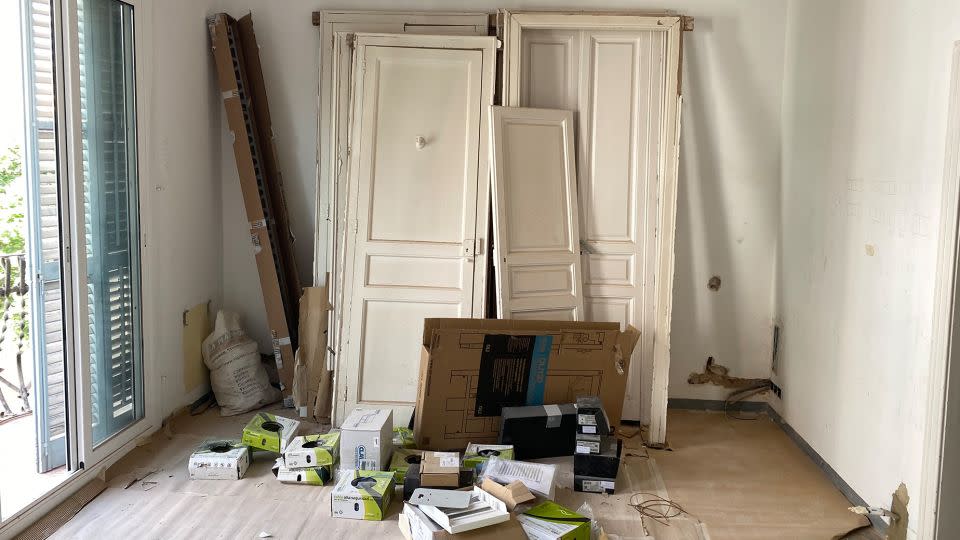
Coe, who has lived overseas since 2006, doesn’t feel nostalgic for the United States, where he visits a couple of times a year.
“I miss the mountains and lakes of the Pacific Northwest, and, of course, my family. Other than that, I don’t really miss anything and can find whatever I need in Barcelona. I have more than adapted to the style of living in Spain. Cannot imagine moving back to the US at this point.”
Barcelona really captured Coe with its vibrant, small and approachable vibe with a blend of expats and locals, a city that “hums with activity, promising discovery nearly any day or evening of the week.”
There is no other city on the Mediterranean that is as international as Barcelona, he says, and the neighborhood he lives in is a mix of market stalls and stores, where residents and local shop keepers have become new friends.
“I leave my building and before reaching the first corner, I have already greeted a half dozen people. It is a real community, and I feel a part of that community,” Coe said.
“Surely this happens in the US, but not with the same level of engagement. If US cities had more density and less cars, maybe, it could be replicated to some degree. The day-by-day act of living here leads to a quality of life unmatched by anywhere else that I have lived.”
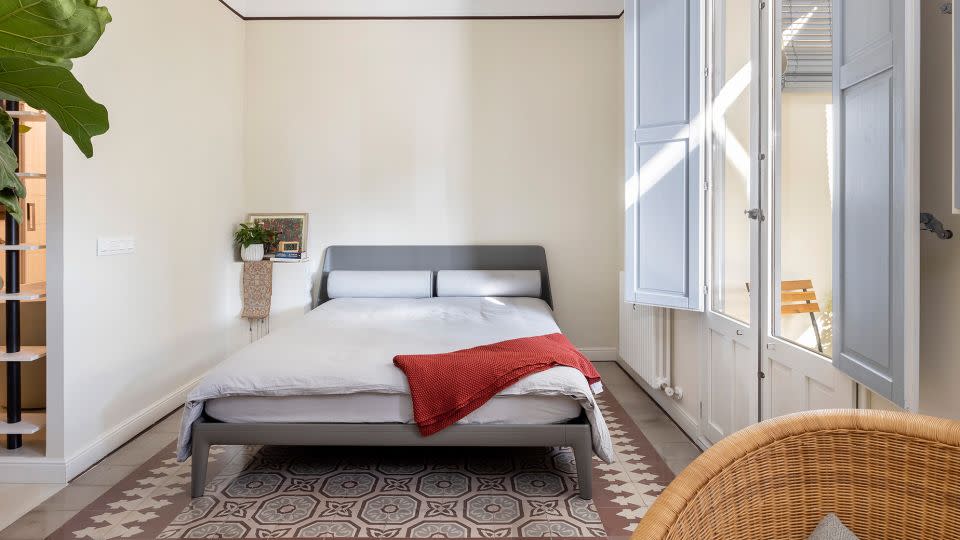
Launching a new venture
Barcelona’s slow lifestyle and the warm Mediterranean weather were all plus points that supported Coe’s decision to open his own company, VistaFutura, in 2022 to help other expats find a home, connecting them with local architects and builders.
“I had a chance later in life to do what I really want to do in a place I love to live,” he said.
Relocating was far from a piece of cake, though. He had to first figure out how to live in Spain legally.
“I navigated the visa process and obtained my residency on my own by reading the laws and immigrant forums (great way to improve my Spanish), standing in lines to get information, calling the Spanish Consulate.”
He made a couple of “wrong turns,” he said, and the process was time-consuming.
“My own experience, though, became an impetus for me to start my own business supporting others seeking to move to Barcelona.”
Coe has a permanent resident visa (Residencia Larga Duración), allowing him to work and reside in Spain permanently. He says it’s not so hard to get for other US citizens, requiring just some diligence in pulling together the paperwork and patience to complete the filing.
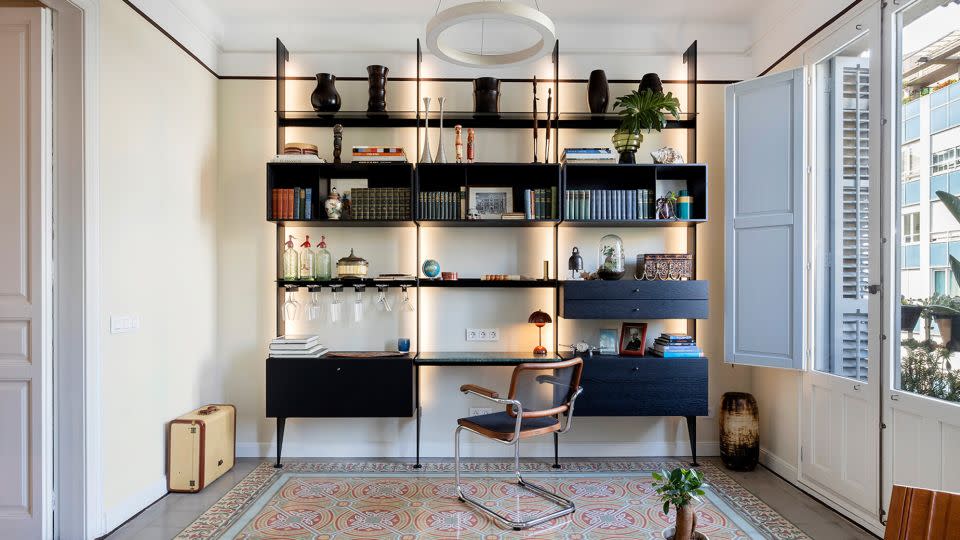
Rhythm of life in Spain
He has quickly picked up the daily rhythm and easy-going habits of Spain.
In the middle of the day, he drops by the local market to pick up fresh produce for lunch. Then he succumbs to the iconic siesta, resumes work in the afternoon and then goes out for evening tapas with friends and Spanish movies to hone his language skills.
Weekends are for indulging his wanderlust, hopping on a train or bus for a coastal or hilly hike in the foothills of the Pyrenees where Coe stays in cozy typical hostales.
The business he set up may be a dream job, but it comes with challenges and funny episodes, particularly when dealing with American clients addicted to the rat race who can’t come to grips with the slow-paced Spanish mode of living.
“Americans try to do too much in too short a time and get aggravated when they can’t schedule appointments during the middle part of the afternoon or find a business closed on a Sunday,” Coe said. “I hear them complain about how hard it is to get anything done in Spain and how much easier it would be in the US. That attitude is a sure-fire way to ensure that one never adapts.”
Living at a slower pace
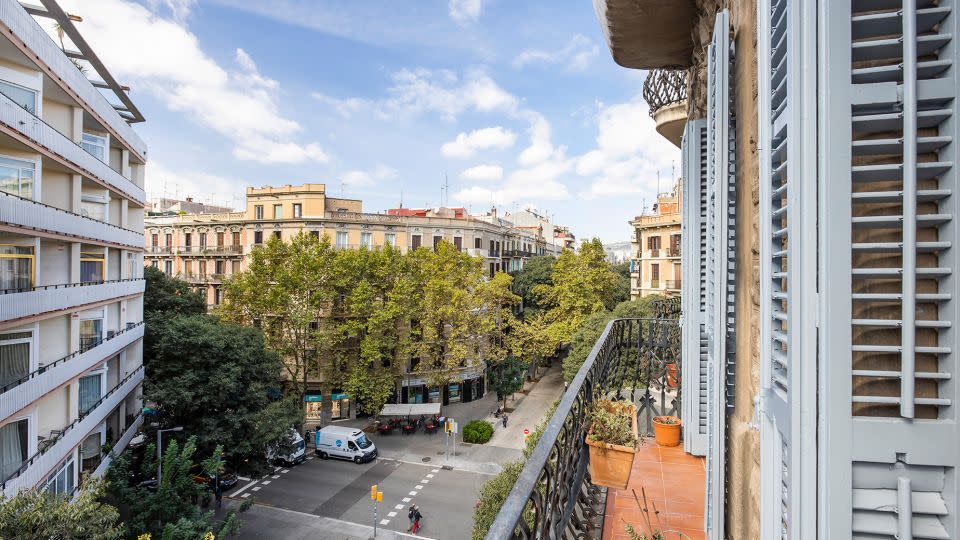
The Spanish lifestyle has provided a useful lesson, teaching Coe to slow down and accept the pace. He says things do get done the Med way, just a bit more slowly.
He’s also adopted the working schedule of the Spanish, breaking for a lengthy lunch and not resuming work before 4 p.m. But late dinners, which tend to start at 10 p.m. and drag on till midnight, are a no-go for him.
“Unless you are a night owl, I find it tough to eat dinner after 9 p.m. and then go to sleep around 11 p.m. Tough on the digestive system!”
Going for groceries is much more relaxing and involves some healthy, light physical activity.
“I love shopping for fresh food, walking to the market, not having to get in a car and drive to some giant box grocery store.”
Coe says the cost of living is lower than in the United States, but so are Spanish salaries. But if you’re earning a salary in line with US earnings, it offers great value.
Though prices in Spain have lately soared with inflation — also hitting property costs — full lunchtime meals in non-touristy Barcelona spots are maximum of about 14 euros (about $15), while a good coffee is 2.50 euros (about $2.75) — often as much as half US prices, says Coe.
On the downside, Coe has noticed a rise in overtourism in Barcelona’s hot spots, with crowds packing museums and key attractions. And lines at airport immigration have gotten longer.
Yet the pros of living in Spain by far outnumber the cons, Coe says. He’s not stressed about paying for health insurance, for example. In Spain, he’s eligible for national health care, having contributed through Social Security payments and having lived in Spain for more than 5 years.
And living in Spain has given Coe an enviable gift.
“I have more time, less urgency, more time to travel and discover.”
For more CNN news and newsletters create an account at CNN.com


